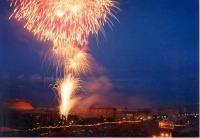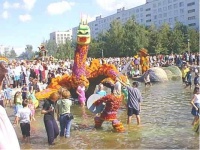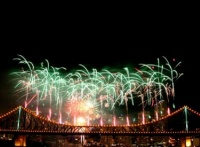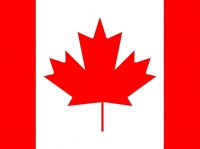НовоВики. «Мой Новосибирск родной!»
Традиции и праздники в разных странах
Перейти обратно к Исследование учащихся Традиции, праздники...
Содержание |
О традициях
Традиция (от лат. traditio — передача; предание), элементы социального и культурного наследия, передающиеся от поколения к поколению и сохраняющиеся в определённых обществах, классах и социальных группах в течение длительного времени; охватывает объекты социального наследия (материальные и духовные ценности); процесс социального наследования; его способы. В качестве Т. выступают определённые общественные установления, нормы поведения, ценности, идеи, обычаи, обряды и т.д.
Т. не сводится к наиболее стереотипным своим разновидностям, таким, как обычай и обряд, но распространяется на гораздо более широкую область социальных явлений. Определённые Т. функционируют во всех социальных системах и в известной мере являются необходимым условием их жизнедеятельности. Наиболее широка сфера Т. в докапиталистических общественных формациях. Т. присущи самым различным областям общественной жизни (экономике, политике, праву и т.д.), но удельный вес их в той или иной области не одинаков. Он достигает максимума в религиозных Т. занимает определённое место в науке и в искусстве.
В классовых обществах Т. носят классовый характер. С одной стороны, классовая дифференциация оказывает существенное влияние на общенациональное культурное наследие, с другой — каждый класс, социальная группа обладают своими собственными Т. Отсюда множественность и противоречивость Т. и отношения к ним. Каждое поколение, с необходимостью воспринимая ряд Т., вместе с тем в определённой мере осуществляет выбор тех или иных Т., и в этом смысле оно выбирает не только своё будущее, но и прошлое. Длительность существования Т. сама по себе не определяет её современное значение; жизнеспособность Т. коренится в её дальнейшем развитии последующими поколениями в новых исторических условиях. Общество, класс или группа, воспринимая одни элементы социального наследия, в то же время отвергают другие, поэтому Т. могут быть как позитивными (что и как воспринимается), так и негативными (что и как отвергается).
С.Ю. ГОЛОВИН. СЛОВАРЬ ПРАКТИЧЕСКОГО ПСИХОЛОГА.
ТРАДИЦИЯ - исторически сложившиеся, передаваемые через поколения формы деятельности и поведения, а также сопутствующие им обычаи, правила, ценности, представления. Традиция складывается на основе тех форм деятельности, что неоднократно подтвердили свою общественную значимость и личностную пользу. С изменением ситуации социальной развития некоей общности традиция может разрушаться, трансформироваться и замещаться новой. Традиции - важный фактор регуляции жизнедеятельности, составляют основу воспитания. В этнопсихологии понятие связки или пучка традиций - одна из характеристик национальной общности.
Holidays in Russia
Basically in Russia there are as many official holidays as in every other country of the world; nine to be exact. However, the interesting thing about Russian holidays is the following: they last long. Preparation for the holiday begins at least a day before it actually arrives. Then it is considered tradition to prolong the holidays if they are close to the week-end or if they just turn out to be on a Monday. So usually instead of one day off people get two or three free days. Sometimes even more v like a special Russian fiesta!
Another nice thing about Russian holidays is that all the shops, supermarkets and the grocery stores are open throughout the day and usually work until the late evening, especially in big cities and downtown areas. It is not a good idea to plan any business during a Russian holiday, since people just don't think about work. But for the tourist, traveling at this time could be quite interesting. You can escape that awful rush hour traffic, which is very common during the average work day. As a matter of fact you will get a chance to see cheerful Russians and witness how they party. Believe me - this is something to discover!Despite the fact that to foreigners Russians seem to celebrate something all the time, there are only nine official holidays in the country. Of course there are many days in which it is considered appropriate to celebrate, such as the day of printing, or the day of geologists, the day of chemists, the library day, the day of the frontier guard, the day of Slavic literature and culture; there is even a fisherman's day and many more dates to drink for someone's respectable profession or something else completely unrelated. Basically Russian people can celebrate something almost every day. Sometimes there is a good reason for a big party, but no reason is needed to celebrate life by having a drink with a few friends.
The official holidays often require participants to forget about their jobs and problems and just have a good time. This, more often than not, includes many alcoholic drinks that are consumed with friends.
Russian Holiday Schedule
- New Year's Day Day - January 1,2
- Christmas Day - January 7
- Defenders of the Motherland Day - February 23
- International Women's Day - March 8
- Easter -
- May 5 (2002)
- April 27 (2003)
- April 11 (2004)
- Labor Day/May Day - May 1, 2
- Victory Day - May 9
- Independence Day - June 12
- Day of Accord and Reconciliation
(The holiday formerly known as the Day of the Great October Revolution) - November 7
- Constitution Day - December 12
Holidays in Great Britain
There are some holidays in G.B. They are Christmas day, Boxing Day, new years day, Easter, mayday, spring bank holiday and simmer bank holiday. Public holidays in G.B. are called bank holidays because the banks as wall as most of the offices and shops are closed.
The most popular holiday is Xmas. Every year the people of Norway give the city of London the present. It is a big Xmas tree and it stands in Trufalger square. Central streets are beautifully decorated. Before Xmas groups of singers go from house to house. They collect money for charity and sing carols traditional Xmas songs. Many churches hold a carol serves on the Sunday before Xmas.
The fun starts the night before, on the 24 of December. This is the day when people decorate their trees. Children hang stocking at the end of their beds, hoping that Santa Claus will come at night and full them with toys and sweets. Xmas is a family holiday. Relatives prepare for the big Xmas dinner of turkey and Xmas pudding and every one gives and gets presents.
The 26 of December, Boxing Day are an extra holiday after Xmas. This is the time to meet friends or sit at home and watch TV. New years day is less popular in Britain then Xmas.
Besides public holidays there are some special holidays in Britain. One of them takes place on the 5 of November. On that day in 1605 Guy Fawkes tried to blow up the House of Parliament and kill a King James the first. But he didnt succeeded. The Kings men found the bomb and took Guy Fawkes to the tower. Since that day the British celebrate the 5 of November.
There are also smaller holidays in Great Britain.January • 1st New Year's Day • 5th Twefth Night
February • 1st Candlemas Day • 14th Valentine's Day
March • 1st St David's Day (Wales National Day) • 17th St. Patrick's Day (Ireland's Special Day March/April • Shrove Tuesday • Lent • Mothering Sunday • Maundy Thursday • Easter
April • 1st April Fool's Day • 23rd St George's Day (England's National Day)
May • 1st May Day
June • Trooping the Colours • Wimbledon Tennis Tournament
July • Swan Upping
August • Notting Hill Carnival
September • Harvest Festival
October • 31st Halloween
November • 5th Bonfire Night • 11th Remembrance Day • 30th St Andrew's Day (Scotland's National Day)
December • Advent • 25th Christmas • 26th Boxing Day
American Holidays
Official information and services from the U.S. government
Americans celebrate a variety of federal holidays and other national observances throughout the year. American holidays can be secular, religious, international, or uniquely American.
With the wide variety of federal holidays, and the many levels of American government, it can be confusing to determine what public and private facilities are open on or around a given federal holiday. You can usually find such information in the daily newspaper or by calling the office you wish to visit.
The following are American federal holidays and other common national observances. Federal holidays are indicated as such. New Year's Day is January 1. The celebration of this federal holiday begins the night before, when Americans gather to wish each other a happy and prosperous coming year. Many Americans make New Year's resolutions.
Martin Luther King Day is a federal holiday celebrated on the third Monday in January. The Reverend Martin Luther King, Jr. was an African-American clergyman who is recognized for his tireless efforts to win civil rights for all people through nonviolent means.
Groundhog Day is February 2, and has been celebrated since 1887. On Groundhog Day, crowds gather in Punxsutawney, Pennsylvania, to see if groundhog Punxsutawney Phil sees his shadow after emerging from his burrow, thus predicting six more weeks of winter weather.
Valentine's Day is celebrated on February 14. The day was named after an early Christian martyr, and on Valentine's Day, Americans give presents like candy or flowers to the ones they love. The first mass-produced valentine cards were sold in the 1840.
Washington's Birthday is a federal holiday observed the third Monday of February to honor George Washington, the first President of the United States. This date is commonly called Presidents' Day and many groups honor the legacy of past presidents on this date.
Easter falls on a spring Sunday that varies from year to year. Easter is a Christian holiday celebrating the resurrection of Jesus Christ. For Christians, Easter is a day of religious services and the gathering of family. Many Americans follow old traditions of coloring hard-boiled eggs and giving children baskets of candy.
Earth Day is observed on April 22. First celebrated in 1970 in the United States, it inspired national legislation such as the Clean Air and Clean Water Acts. Earth Day is designed to promote ecology, encourage respect for life on earth, and highlight concern over pollution of the soil, air, and water.
National Arbor Day was proclaimed as the last Friday in April by President Richard Nixon in 1970. A number of state Arbor Days are observed at other times to coincide with the best tree planting weather, from January and February in the south to May in the far north. The observance began in 1872, when Nebraska settlers and homesteaders were urged to plant trees on the largely treeless plains.
Mother's Day celebrates mothers every second Sunday of May. President Woodrow Wilson, who issued a proclamation in 1914, asked Americans to give a public expression of reverence to mothers on this day. Carnations have come to represent Mother's Day, following President William McKinley's habit of always wearing a white carnation, his mother's favorite flower.
Memorial Day is a federal holiday observed the last Monday of May. It originally honored the people killed in the American Civil War, but has become a day on which the American dead of all wars, and the dead generally, are remembered in special programs held in cemeteries, churches, and other public meeting places. The flying of the American flag is widespread.
Flag Day, celebrated June 14, has been a presidentially proclaimed observance since 1916. Although Flag Day is not a federal holiday, Americans are encouraged to display the flag outside their homes and businesses on this day to honor the history and heritage the American flag represents.
Father's Day celebrates fathers every third Sunday of June. Father's Day began in 1909 in Spokane, Washington, when a daughter requested a special day to honor her father, a Civil War veteran who raised his children after his wife died. The first presidential proclamation honoring fathers was issued in 1966 by President Lyndon Johnson.
Independence Day is July 4. This federal holiday honors the nation's birthday - the adoption of the Declaration of Independence on July 4, 1776. It is a day of picnics and patriotic parades, a night of concerts and fireworks. The flying of the American flag is widespread.
Labor Day is the first Monday of September. This federal holiday honors the nation's working people, typically with parades. For most Americans it marks the end of the summer vacation season and the start of the school year.
Columbus Day is a federal holiday celebrated on the second Monday in October. The day commemorates October 12, 1492, when Italian navigator Christopher Columbus landed in the New World. The holiday was first proclaimed in 1937 by President Franklin D. Roosevelt.
Halloween is celebrated on October 31. On Halloween, American children dress up in funny or scary costumes and go "trick or treating" by knocking on doors in their neighborhood. The neighbors are expected to respond by giving them small gifts of candy or money.
Veterans Day is celebrated on November 11. Originally called Armistice Day, this federal holiday was established to honor Americans who had served in World War I, but it now honors veterans of all wars in which the U.S. has fought. Veterans' organizations hold parades, and the president places a wreath on the Tomb of the Unknowns at Arlington National Cemetery in Virginia.
Thanksgiving Day is a federal holiday celebrated on the fourth Thursday in November. The holiday began in 1621, when Puritans, who had just enjoyed a bountiful harvest, showed their gratitude to the Native Americans for their help by hosting a feast to give thanks. The Thanksgiving feast became a national tradition and almost always includes some of the foods served at the first feast: roast turkey, cranberry sauce, potatoes, and pumpkin pie.
Pearl Harbor Remembrance Day is December 7. In 1994, Congress designated this national observance to honor the more than 2,400 military service personnel who died on this date in 1941, during the surprise attack on Pearl Harbor, Hawaii, by Japanese forces. The attack on Pearl Harbor caused the United States to enter World War II.
Christmas Day is a federal holiday celebrated on December 25. Christmas is a Christian holiday marking the birth of the Christ Child. Decorating houses and yards with lights, putting up Christmas trees, giving gifts, and sending greeting cards have become traditions even for many non-Christian Americans.
Other Celebrations
Various ethnic and religious groups in America celebrate days with special meaning to them even though these are not national holidays. Jews, for example, observe their high holy days in September, Muslims celebrate Ramadan, African Americans celebrate Kwanzaa, Irish Americans celebrate the old country's patron saint, St. Patrick, on March 17, and Mardi Gras is the day before the Christian season of Lent begins and is a big occasion in New Orleans, Louisiana, where huge parades and wild revels take place. There are many other such religious and ethnic celebrations in the United States.
Australian holidays
The culture of Australia is rich in both Indigenous and European tradition. Australians love to celebrate their heritage, and most major cities hold unique arts festivals with dance, outdoor music, cinema, food, and wine, at various points throughout the year. Generally, these festivals are completely free of charge, and offer an exciting way to experience the culture of Australia. The country also commemorates a set of national Australian holidays, many with their own celebrations.National Australian Holidays
One holiday in Australia, observed June 8th to allow a break before winter, is the Queen's Birthday. Generally, schools and government offices will be closed on this day. Another day on which government buildings will likely be closed is January 26th, Australia Day. Australia Day commemorates the first British settlement in Australia, in 1788. Today, major cities throughout the country celebrate Australia day with moderate parades, free food, and locally organized events. Sydney hosts a surf board paddle race beneath the Harbor Bridge, in which both amateurs and pros are equally welcome to participate.
One holiday in Australia celebrated both by Australian's, and their New Zealand neighbors alike is ANZAC Day, on April 25th. ANZAC Day honors those who have died in wars, and most specifically troops who died fighting during the first World War. ANZAC stands for the Australian and New Zealand Army Corps, and travelers will find parades and ceremonies memorializing the Army Corps in most of Australia's major cities.Culture of Australia
The modern culture of Australia combines both European tradition and Aboriginal legacy. While the impact of European settlers on the indigenous population of Australia was, for the most part, catastrophic, there are remaining arts and festivals celebrating Aboriginal life and culture. European settlers brought with them many food and lifestyle traditions, and the Australia of today is a combination of these influences, as well as current American influences. Australian holidays tend to reflect this mixture.
Festival and Events in Australia
There are a myriad of culture and art festivals throughout Australia. Most of these festivals are totally free of charge, and offer an international visitor the chance to experience some of the celebrations that are unique to Australia. The Sydney Festival features music, dance, and visual arts each January. The Perth International Arts Festival takes place every February, and offers a comprehensive mix of traditional dance performances and outdoor theatre. If you are looking to relax indoors, check out the Melbourne International Film Festival between July and August. More then 300 films are brought in each year from around the world, and is one of the most celebrated events in Australia.
No matter what time of the year you plan to visit, events in Australia abound. Since most of these events in Australia are free of charge, be sure to include at least one in your holiday in Australia.
Australian traditions
Australia Day
Australia doesn't have many traditions. Attempts to get Halloween off the ground have stalled due to one too many homeowners telling little kids to get off their property or they will see a scary sight. Australia's equivalent of America's Thanksgiving Day is Australia Day on January 26, the landing of the First Fleet of Convicts in Botany Bay.
Unfortunately, there is much more emotional resonance in celebrating pioneering pilgrims who broke bread with the natives than there is in celebrating criminals that stole bread and were duly hung. Needless to say, Australia has no tradition of putting the old ball and chain on your leg, and subsequently walking down the street in tribute to the founding fathers. Likewise, Australia has no statues of the pioneering Convicts holding up their shackled wrists in triumph!
Ironically, the suffering the Convicts and the cruelty of the wardens makes the anniversary of their landing quite a useful date for a national celebration. Because Australia commenced in such a negative way, the date provides a great opportunity to reflect upon how far Australia has come, and how far it still has to go.
Many Australians put such sentiments into action by using Australia day to visit friends, attend a rock concert, or have a barbeque. Because there are no firm prescriptions about how they should think or feel, most Australians simply take the initiative to make the day into what they want it to be. Consequently, whereas many national days around the world involve citizens reflecting on the achievements of their ancestors that they have not personally lived up to, Australia’s national day involves citizens acting in a vastly superior way to the people that the date acknowledges.
Although most Australians have a good time on January 26, a few concerned citizens wish their national day was more similar to the national day of foreign countries, where there are firm behavioural prescriptions and clear symbolic meanings. As a result, these people want the date of Australia Day to be changed to something as inspiring as Thanksgiving Day. As Daniel Bryant, a concerned citizen, argued:
" The 26th of January is an inappropriate date for Australia Day as it merely represents the anniversary of the arrival of the British to establish the penal colony of New South Wales. It does not represent of birth of a nation and disengages the aboriginal and non-British communities from their sense of involvement in nationhood. It also sends the wrong message to our Asian neighbors, reminding them of our European roots."
Tobin Maker, another concerned citizen, sarcastically expressed a similar feeling of alientation:
" Instead of reciting the oath on Australia day, which commemorates the founding of a prison in Sydney, why don't we Victorians recite the oath on the anniversary of the laying of the first stone of Pentridge Prison? "
Even though concerned citizens like Mr Bryant and Mr Maker wish for an inspirational event, no such event ever occured in Australia and wishing for one wont make it so. The alternative dates that have been suggested really go down like a lead balloon. One of these dates is January 1, which is the anniversary of the first sitting of federal parliament. Such suggestions have hit a wall because it is generally accepted that the only thing worse than having a Convict in your ancestry is having a politician. In any case, it is already a holiday and one that typically involves sleeping off a hangover.
Another suggested date is December 3, the anniversary of the Eureka Stockade. The main problem with this idea is that the Eureka Stockade has some associations with unionism and white supremacy. Such associations tend to divide Australians rather than unite them. While a barbeque or musical festival may not be sombre, at least they are superior to some kind of political argument over workers rights or genetic superiority.Another suggested date is May 27, the anniversary of the 1967 referendum that proposed Aborigines be counted in the federal census and the federal government gain the power to make laws specifically for Aborigines. Although 90% of Australians voted in favour of the referendum, there are a few potential problems with celebrating it. The main problem is that since gaining the power to make policies specifically for Aborigines, the federal government has used it in a very destructive way. Celebrating the referendum would almost be like celebrating a white police officer being given a gun to protect black people, but who went on to shoot them instead. If the outcome doesn't match the feel-good symbolism, then perhaps the value of the feel-good symbolism needs to be questioned.
Some of the symbolism can indeed be questioned. The clause altered in the referendum was a dubious one to begin with. It had originally being created as part of the White Australia Policy and aimed to give federal politicians the power to discriminate against Chinese and pacific islanders. Ideally, the baby boomers in the 60s would have had the foresight to limit the power of the federal government to make race-specific policies, not extend it. Consequently, although baby boomers might like to celebrate their achievement in 1967, in symbolism or outcome, it might not have been such the achievement they believed it to be.'ANZAC Day -Dawn Service'
Although ANZAC Day has been around for a long time, its mainstream popularity is a recent phenomenon. Like Australia Day, it is built on the anniversary of a tradegy. On the 25th of April 1915, the British landed Australian soldiers at Gallipoli as part of an offensive against the Turkish control of the Dardanelles. Quite stupidly, they landed the Diggers not on an open plain but on scrub-covered hills. The Turks were dug in from elevated positions and mowed down the Diggers as they leapt from the boats. Of the 1500 men who landed in the first wave, only 755 remained in active service at the end of the day.
The futulity of the event has led some Australians, such as ex-Prime Minister Paul Keating, to criticise it as being immoral, not in Australia's interests, and a failure. Even if such criticisms were justified, the decision to base Anzac Day on the anniversary of the Gallipoli landing has produced a very unique and a very humane approach to war remembrance. Instead of being a jingoistic celebration like many military days around the world, Anzac Day is very human. It begins solemnly, then descends into a party affair with drinking and gambling.
The key feature of the day is the Dawn Service. During battle, dawn was one of the most favoured times for an attack as the half-light played tricks with soldiers' eyes. Therefore, soldiers were awoken in the dark, so that by the time the first dull grey light crept across the battlefield, they were awake and alert.
The fresh light instilled a sense of optimism for the new day tempered by the fear that it could be their last. For those who survived, it bequeathed memories of burying a mate along with the awareness that they would have to preserve the feelings of what they had lost.
When the soldiers returned home, the first light of the morning would once again remind them of their experiences and they sought out the company of those who could understand. On the 25th April 1923 at Albany in Western Australia, the Reverend White led a party of friends in what was the first ever observance of a dawn service. It wasn't until 1927 that the first official service was held at the Sydney Cenotaph.
Part of the service includes a paragraph taken from the poem 'Ode for the Fallen'.
"They shall grow not old, as we that are left grow old; Age shall not weary them, nor the years condemn. At the going down of the sun and in the morning We will remember them."
The poem neither attributes right or wrong nor does it glorify war as the liberator of freedom. It simply articulates what the war meant to those who were involved in it. Needless to say, it is a message that prime ministers don't always like. They want soldiers to celebrate dying for the government, not reflecting upon the anguish of war.
For decades, families and young people were not welcome at these dawn services but in recent times, they have been encouraged to take part. They have also been encouraged to take part in marches wearing the war medals of deceased relatives. Arguably this was brought about due to necessity as the stars of the show had a habit of dying each year leading to the very real prospect of crowds one day cheering on an empty street.
Another suggested change is to allow the Australians who had relatives that fought on the opposite side, to take part wearing the war medals of the deceased.
In 1998, eligible Turks in Australia were allowed to march for the first time. For the Turks, it was the culmination of two decades of campaigning as they tried to bring the spirit of friendship out of the catastrophic loss of life.
It was also their way of implementing the wisdom of Mustafa Kemal Ataturk, their first president and mastermind of the Turkish resistance in the Gallipoli campaign, who said:
"Your sons are now lying in our bosom and are in peace. After having lost their lives on this land, they have become our sons as well." Mustafa Kemal Ataturk
Christmas
Although not Australian, religious festivals such as Christmas are well supported. Of course, Santa Claus looks a bit inappropriately dressed in his North Pole attire in the heat of the Australian summer. It's also quite strange listening to people sing about a white Christmas when the temperature is hot enough to fry an egg. Finally, the "traditional" Christmas turkey is also proving to be a little unsuitable for the hot weather. When the temperature is 40 degrees, the last thing people want to do is open the door of an even hotter oven. As a consequence, seafood on ice is gradually becoming Australia's favoured Christmas food.
Sometimes people try to get the northern hemisphere Christmas spirit with lights, charity and carols. Again, the Australian environment is a little problematic. Because it doesn't get dark until 9pm, it can be a bit difficult taking the kids on a tour to see some Christmas lights before bedtime. Furthermore, helping a needy person always feels much better when the needy person is freezing in the snow. It just doesn't provide the same emotional gratification when it is hot, and the needy person looks like a bogan whose been kicked out of pub for having too much to drink.
The hot weather is also having an effect on the design of the Christmas tree. In the northern hemisphere, the Christmas tree is of great importance due to the amount of time a family spends indoors around it. But in Australia, families spend more time outdoors on verandas and barbecue areas where the tree is never seen. Consequently, the tree is often some stringy shrub that has only been included because it's the "traditional" thing to do.With so much time being spent outdoors, Christmas is strongly associated with sport. A game of backyard cricket may put a gift to quick use, and also smooth tensions between distant family members who, despite thinking they should be together on Christmas, really don't like each other.
For those who find playing sport a bit strenuous, Christmas is followed by Boxing Day where they have a great opportunity to watch it. Boxing Day marks the beginning of the Sydney to Hobart Yacht race, and tens of thousands of Sydney-siders will flock to see the Yachts commence their 628 nautical mile journey to the Apple Isle. For the next week, Australians all along the south east seaboard will gaze across the ocean to see the Yachts go by.
While Sydney has its Yacht race, Melbourne has its cricket. Up to 100,000 people will flock to the MCG to see the opening day of the test. Some will be there to get drunk and enjoy the summer sun. Some will be there because they are seriously interested in the cricket. Others will be there because it is Boxing Day tradition.
After Boxing Day comes New Year's Eve. Being in the heat of the Australian summer, this is likely to be spent outside under some fireworks, in a park laying on some grass, on the beach looking at the ocean, or standing on a crowded street looking at an even more crowded nightclub. Couples with enjoy a countdown before heading on their merry way to do what couples do. As for singles, they will await the countdown as an excuse to take the first step towards those things that couples do.
Melbourne cup
Considering that that Australia's top three heroes are a cricketer, a bushranger and a race horse, perhaps it is fitting the only time the nation stops as one is to have a wager on a dubious sporting pastime.
The discovery of gold in 1853 led to a huge influx of gamblers to Australia's shores. If the diggers struck it lucky on the goldfields, they would head for the track to see if the luck would continue. Invariably it didn't and racing clubs sought bigger and bigger meetings to relieve the prospectors of their gold.
The Victoria Turf Club staged the first Melbourne Cup in 1861 and by 1866, the Government had proclaimed the day a public holiday. To make life difficult for punters, the race is run over the unusually long distance of 3200m, it may have up to 30 starters and the favoured horses are handicapped with extra weight.
Although knowledge of the form is still a prerequisite to talk like a guru at pre-race functions, the many variables make picking a winner a case of pinning the tail of the donkey. The most successful method seems to be whether it has a good name or not. With the exception of Kiwi which evokes sheep imagery, all winners have had impressive names like Phar Lap, Black Knight or Vintage Crop.
The fact that the cup is such a lottery has helped it gain popularity amongst those with no interest in racing. There is a certain charm associated with seeing a guru who has studied the form all year, grimly stewing as some novice gloats about how she picked the winner only because she thought its name would still be pronounceable after downing her second bottle of Champagne.
But the Melbourne Cup is more than just a horse race, it is also one of the few times where Australians celebrate looking stylish and acting like a pompous wanker. In a land of the ugg boot and cork hat, world fashion designers rarely seek their inspiration with a trip down under. But on that first Tuesday in November, the dark clouds part and the elegant ladies come out to shine. It is a day when the famous proverb, " the bigger the hat, the smaller the property" is transformed into "the bigger the hat, the smaller the skirt."
Although it is only a public holiday in Victoria, around the country kind bosses stop work and use the day as a team-building exercise. There is usually a sweep, a prize for the best hat and a drink or two or many. Roughly speaking, the popularity of a boss is proportional to the quantity of alcohol drunk and inversely proportional to the amount of work completed on the day.
St Patrick's Day
St Patrick's Day is a popular tradition. Even though it may be in tribute to a patron saint of a foreign country, it involves a lot of drinking hence its appeal. A home grown saint is yet to eventuate. A Ned Kelly Day would be a possibility. As a result of Our Ned's Last Stand, police corruption was cleaned up, and a century of painters, novelists, musicians and poets gained a muse of inspiration. The only problem with a Ned Kelly day would be that having a day to celebrate an executed cop killer would be as ridiculous as having a national day to celebrate criminals.
Common attitudes towards Australia Day
The 26th of January is an inappropriate date for Australia Day as it merely represents the anniversary of the arrival of the British to establish the penal colony of New South Wales. It does not represent of birth of a nation and disengages the aboriginal and non-British communities from their sense of involvement in nationhood. It also sends the wrong message to our Asian neighbors, reminding them of our European roots. Daniel Bryant
Australia Day should be changed to a more suitable date, rather than the one that not only insults the rightful owners of this land, our indigenous peoples, but conveniently disregards the non-White (sic) migrants. Australia Day = Shame Day Nature and diversity of culture for me is Australias(sic) beauty. I wonder how Aboriginal people would view this lunacy. Michele Walker
Instead of reciting the oath on Australia day, which commemorates the founding of a prison in Sydney, why don't we Victorians recite the oath on the anniversary of the laying of the first stone of Pentridge Prison? Tobin Maker
We must be the only country in the world that marks its national day not by celebrating its identity, but by questioning it. Ken Boundy
A country stops for a day at the races
Editorial - The Australian November 2 2004
"TWO days on the nation's collective kitchen calendar, Anzac Day and Cup Day, bring us together like no others. And although one begins with darkness and grievous loss, while the other is all colour and fun, both capture elements of the larrikinism and egalitarian impulse that are embedded deep within this nation's unique spirit. As a handicap, the Cup is the most egalitarian race the world takes notice of, and we are the only country that celebrates such a race as our featured event: it takes a super horse to win, but every nag starts with a show. Adding to this element are the many paths that can bring a horse to the starting gate at Flemington at 3.10pm on the first Tuesday in November. Alongside high-profile favourites such as Makybe Diva - bidding to become the first mare to win the Cup twice - are dark horses such as On a Jeune. But what stories they have to tell! On a Jeune emerged from the South Australian bush circuit only in May, and scored an upset victory in the Cranbourne Cup last month. Her trainer, Peter Montgomerie, will set foot on Flemington racecourse for the first time in his life today. Or what about Kiwi entrant Catchmeifyoucan? Completely unheard of a fortnight ago, this mudlark carrying only 49kg is suddenly in with a show.
This extraordinary annual event will once again be celebrated at special lunches and in office sweeps around the country. And yes, for around three minutes and 20 seconds, the race will stop the nation. All of which raises again the perennial question: why is Cup Day, one of our quintessential annual rituals, not a national public holiday? Wowsers hate the idea, and so do cultural cringers who say we should not announce to the world how deeply we feel about a horse race. Monarchists always suspect a plot in the suggestion that Cup Day could replace the Queen's Birthday holiday, but what about replacing Labour Day? It celebrates a class distinction long since dead in Australia while Cup Day celebrates something brimming with life. "
What makes us the people we are
Editorial - The Australian January 26, 2009
Just as critics argue that Australia Day celebrates a state and society that have done Aborigines many wrongs, others argue there is nothing uniquely Australian to celebrate, on this or another day. Certainly, there is no checklist of chants and speeches that are part of all our Australia Day celebrations. There are no rituals that everybody undertakes. People will celebrate the day in parks all over the country, eating as many dishes as there are countries from which we come. Some will watch cricket, others will wonder why people care about the game. Most will surf in their Speedos but many young women will laugh in the waves, much more modestly attired. Very few of them, first and fifth generation alike, will be able to articulate anything about why we should celebrate Australia, other than that it is home. And that is the point. Australia is a nation united by the idea that all are welcome who want to call the country home. Inevitably, this assumption is abused by people intent on imposing their version of how the country should be, some whose families have been here for many generations and others but one. We saw the disgraceful outcome of these attitudes in the circumstances surrounding the December 2005 Cronulla riot. But Australia has welcomed nearly seven million migrants since 1945, demonstrating that the vast majority of us have an expansive idea of who can be included among "all" Australians
Canadian holidays
Celebrate holidays in Canada with information on history, traditions, crafts and activities.
Canada Day (17)
Christmas (15)
Earth Day in Canada
Fathers Day
Canada Day (17)
Christmas (15)
Earth Day in Canada
Fathers Day
Groundhog Day in Canada
Halloween (23)
Remembrance Day
St. Patrick's Day in Canada
Nationwide statutory holidays in Canada
Date. English Name. French Name. Remarks January 1 New Year's Day Jour de l'An Celebrates the first day of every year in the Gregorian calendar.
Friday before Easter Day Good Friday Vendredi saint Commemorates the crucifixion of Jesus. In Quebec, employers must give either Good Friday or Easter Monday as a statutory holiday.
July 1 Canada Day La fête du Canada Celebrates Canada's 1867 Confederation and establishment of dominion status. In Newfoundland and Labrador, observed as Memorial Day.
First Monday in September Labour Day La fête du travail Celebrates economic and social achievements of workers.
December 25 Christmas Day Noël Celebrates the birth of Jesus.
Statutory holidays for federal employees
In addition to the nationwide holidays listed above, the following holidays are mandated by federal legislation for federally regulated employees. All banks commemorate these holidays, and they are statutory in some provinces and territories.
Date. English Name. French Name. Remarks
Monday after Easter Day Easter Monday Lundi de Pâques Celebrates the resurrection of Jesus. Not a statutory holiday in any province or territory; however, in Quebec employers must give either Good Friday or Easter Monday as a statutory holiday, though most give both days. Banks remain open (legally they cannot close for more than three consecutive days except in emergencies), but employees often receive a "floating" paid day off to be taken on or near the holiday
Monday on or before May 24 Victoria Day La fête de la Reine Celebrates the birthday of the reigning Canadian monarch; however, the date does not change with the change of monarch, being instead fixed on the birthday of Queen Victoria, the sovereign at the time of Canadian Confederation and establishment of Dominion status in 1867. Statutory holiday in Alberta, British Columbia, Manitoba, Northwest Territories, Nunavut, Ontario, Quebec (coincides with National Patriotes Day), Saskatchewan, and Yukon. A holiday in New Brunswick under the Days of Rest Act. Not a statutory holiday in the eastern maritime provinces of Nova Scotia, and Prince Edward Island or in Newfoundland & Labrador.
Second Monday in October Thanksgiving L'Action de grâce A day to give thanks for the things one has at the close of the harvest season. Statutory holiday in Alberta, British Columbia, Manitoba, Northwest Territories, Nunavut, Ontario, Quebec, Saskatchewan, and Yukon. A holiday in New Brunswick under the Days of Rest Act. Not a statutory holiday in the eastern maritime provinces of Nova Scotia, and Prince Edward Island or in Newfoundland & Labrador.
November 11 Remembrance Day Le jour du Souvenir Commemorates Canada's war dead. Anniversary of the armistice ending World War I in 1918. Statutory holiday in Alberta, British Columbia, New Brunswick, Newfoundland and Labrador, Northwest Territories, Nunavut, Prince Edward Island, Saskatchewan, and Yukon. In Manitoba, an "Official day of Observance", not a statutory holiday. In Nova Scotia, not a statutory holiday in that employers have the option of giving Remembrance Day or an alternate day off. Not a statutory holiday in Ontario or Quebec.
December 26 Boxing Day Le lendemain de Noël A secular holiday with mixed and uncertain origins and definitions.[3] Provincially, a statutory holiday in Ontario. A holiday in New Brunswick under the Days of Rest Act. Many employers across the country observe Boxing Day as a paid day off.
Other common statutory holidays
Date. English Name. French Name. Remarks
Third Monday in February Family Day Fête de la famille Statutory holiday in Alberta, Ontario, and Saskatchewan. Celebrated as Louis Riel Day (statutory holiday) in Manitoba. Celebrated as "Islander Day" in Prince Edward Island. Not observed elsewhere.
First Monday in August August Civic Holiday Premier lundi d'août Statutory holiday in British Columbia (British Columbia Day), New Brunswick (New Brunswick Day), Northwest Territories (Civic Holiday), Nunavut (Civic Holiday), and Saskatchewan (Saskatchewan Day). Civic holiday (may be a paid vacation day depending on employer) in Alberta (Heritage Day), Manitoba (Civic Holiday), Ontario (John Galt Day + Simcoe Day + others), Nova Scotia (Natal Day). Not observed in Newfoundland & Labrador, Prince Edward Island, Quebec, or Yukon.
• Saint Valentine's Day February 14
• Flag Day February 15
• Commonwealth Day on the second Monday in March. This has been observed as a holiday in some Commonwealth countries.
• Saint Patrick's Day March 17
• Earth Day on April 22
• Mother's Day on 2nd Sunday of May
• Father's Day on 3rd Sunday of June
• National Aboriginal Day on June 21 as part of the Celebrate Canada series
• Canadian Multiculturalism Day on June 27 as part of the Celebrate Canada series
• National Peacekeepers' Day on August 9 observed on the closest Sunday
• National Family Week—week before Thanksgiving
• Halloween October 31
• National Day of Remembrance and Action on Violence Against Women on December 6
Ресурсы
http://www.woodlands-junior.kent.sch.uk/customs/festivals/
http://www.ucheba.ru/referats/16716.html
http://www.usa.gov/citizens/holidays.shtml
http://russia.rin.ru/guides_e/6642.html
http://www.convictcreations.com/culture/traditions.htm
http://canadaonline.about.com/od/holidaysincanada/Holidays_in_Canada.htm
http://en.wikipedia.org/wiki/B.C._Day
Толковый словарь русского языка













